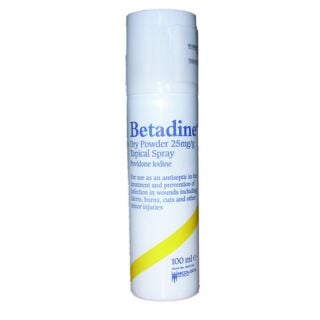Blisters
There’s nothing more annoying and uncomfortable than stepping out in a new pair of shoes only to end up with nasty blisters on your feet. … Read More See less
Blisters are small pockets of clear fluid that develop under the skin, usually caused by friction, burns or skin reactions. If you’re prone to blisters, keeping a pack of blister plasters on hand is always a good idea, or perhaps even a preventative balm to put a stop to the pain before it starts.

Free delivery when you spend over £30

100% discreet delivery for every item ordered

Fully regulated UK pharmacy
How do you treat a blister on the heel?
Most blisters have a bubble, which can be painful and uncomfortable.
Bursting a blister isn’t recommended as it can open the door to harmful bacteria which could cause an infection on the site of the blister.
However, you can safely drain a blister to provide relief.
First, wash your hands, disinfect a needle, and clean the blister with an antiseptic.
Create small punctures around the edge of the blister and allow the fluid to drain on a disposable cloth, then apply antibacterial cream and cover the area with a plaster.
It’s a good idea to repeat these steps daily until the blister has healed.
How can I prevent blisters?
There’s nothing worse than wearing a fancy new pair of shoes only to end up with painful blisters on your heels.
Blisters are caused by friction, so if you think your shoes could make you more prone to blisters, try using a blister plaster to prevent any rubbing.
You could also try wearing two pairs of thin socks to prevent blisters whilst you’re exercising.
Which bandages do I need in my first aid kit?
That random box of plasters you’ve got hiding in your cupboard somewhere probably isn’t going to cut it when you’ve got a nasty wound to deal with!
Plasters are, of course, a vital part of the first aid kit, but you need to make sure you’ve got a range of different shapes and sizes.
You’ll also need small, medium and large sterile gauze dressings, a triangular bandage, crêpe rolled bandages and sterile eye dressings.
What is the best way to care for your feet?
You wouldn’t go a week without showering, so we shouldn’t go a week without checking the health of our feet - they work hard carrying us around all day, after all!
Make sure that there aren’t any sores, cuts, swelling or infections, like athlete’s foot or a fungal nail.
Clean them thoroughly when you shower or bathe, but be careful not to dry them out.
Afterwards, lather them in moisturising lotion and trim your toenails if needed, as it can be painful if they get too long and become ingrown.
Finally, always pick comfortable, supportive shoes if you’re on your feet all day.







